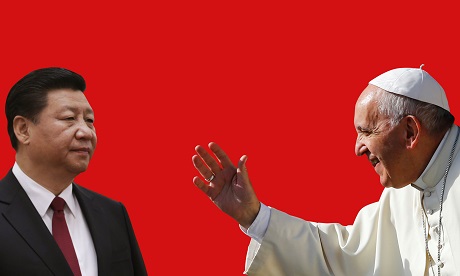Under a new landmark deal with the Vatican, Beijing will recognise Pope Francis as the head of China’s Catholics. In return, the Vatican will recognise excommunicated Chinese bishops.
The deal will end a long struggle between Beijing’s Communist rulers and the pope over who chooses the leaders of Catholicism in China.
“It is a baby step by China toward recognising some of the framework of the Western world,” said Francesco Sisci, an Italian who teaches international relations at China Renmin University in Beijing.
“It doesn’t go as far as recognizing what we in the West call religious freedom but it is a degree of religious autonomy.”
Not everyone is in favour of the deal, however.
Some U.S. diplomats, for example, are concerned Francis is conceding a strong influence over church leadership to an avowedly atheist authoritarian regime.
“This is a strange step backward on terrain over which the church has fought, not for centuries but millennia,” said Sandro Magister, a Vatican expert who writes for Italy’s L’Espresso magazine.
“The church has managed to free itself from control of sovereigns and governments on ecclesiastical matters such as the naming of bishops, but now this achievement is clamorously contradicted by the agreement with China.”
Beijing and the Vatican are close to signing the deal, even though the Chinese government has recently intensified a crackdown on Christians and other religious groups. It has been closing churches and removing religious symbols such as crosses and the domes of mosques.
China’s estimated 10 million Catholics are legally supposed to worship only in churches approved by the Chinese Patriotic Catholic Association, a state-controlled body not recognised by the Vatican. Many Catholics attend unregistered churches in underground communities led by bishops loyal only to Rome.
Nonetheless, Beijing is eager for the publicity boost that mending ties with the Vatican would bring.
Source
